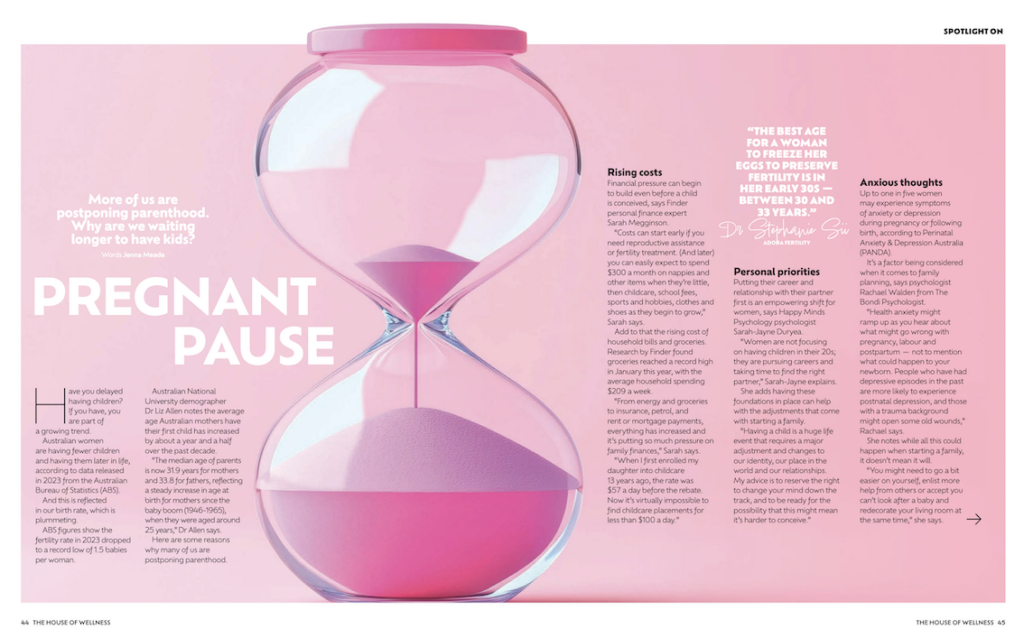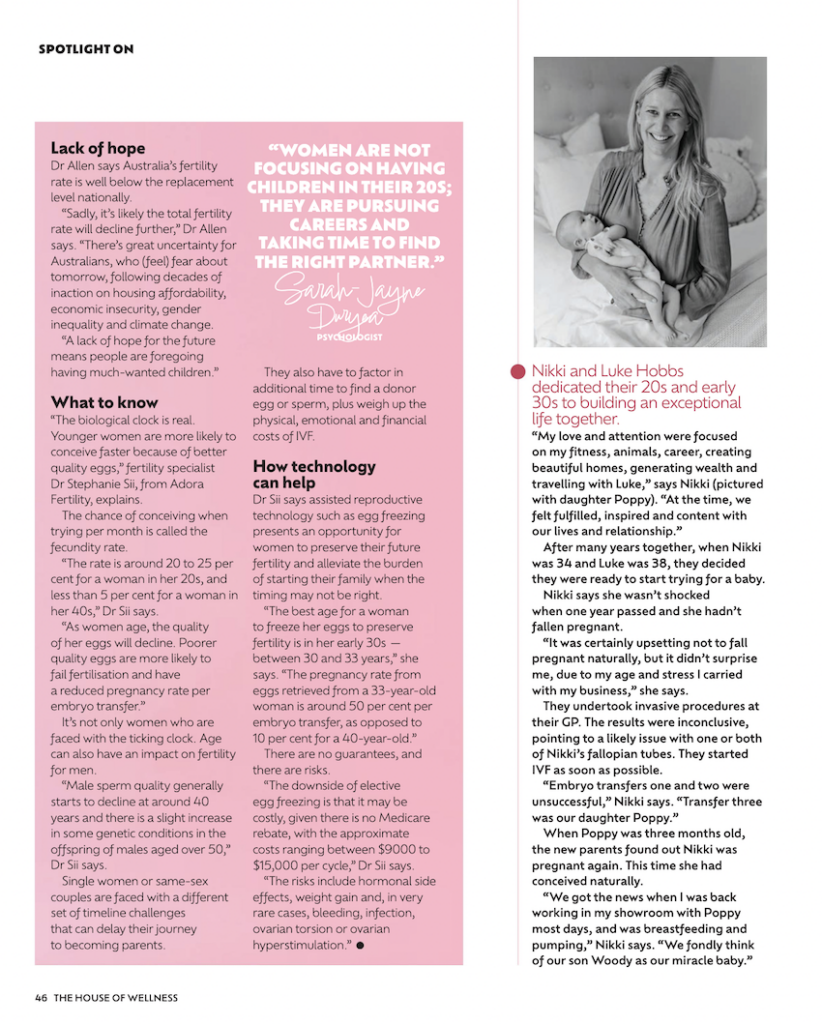More of us are postponing parenthood. Why are we waiting longer to have kids?
Have you delayed having children? If you have, you’re part of a growing trend.
Australian women are having fewer children and having them later in life, according to data released in 2023 from the Australian Bureau of Statistics (ABS).
And this is reflected in our birth rate, which is plummeting.
ABS figures show the fertility rate in 2023 dropped to a record low of 1.5 babies per woman.
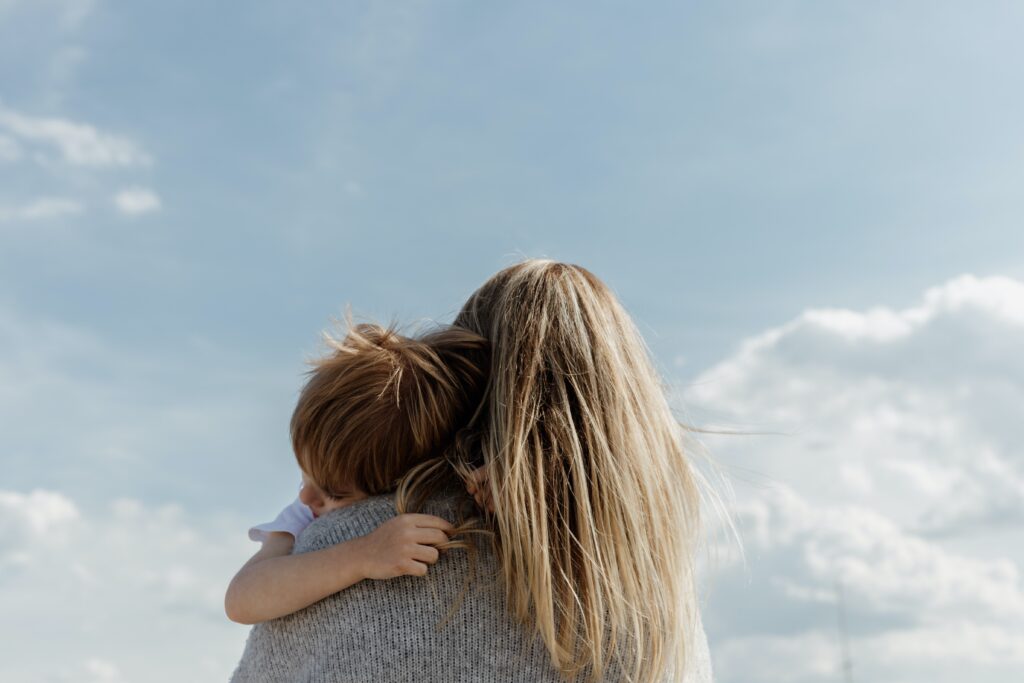
Australian National University demographer Dr Liz Allen notes the average age Australian mothers have their first child has increased by about a year and a half over the past decade.
“The median age of parents is now 31.9 years for mothers and 33.8 for fathers, reflecting a steady increase in age at birth for mothers since the baby boom (1946-1965), when they were aged around 25 years,” Dr Allen says.
Aside from medical conditions, including fertility difficulties, there are a range of reasons why Australians are pressing pause on parenthood.
4 reasons why Aussies are delaying having children
Rising costs
Financial pressure can begin to build even before a child is conceived, Finder personal finance expert Sarah Megginson says.
“Costs can start early if you need reproductive assistance or fertility treatment. (And later) you can easily expect to spend $300 a month on nappies and other items when they’re little, then childcare, school fees, sports and hobbies, clothes and shoes as they begin to grow,” Megginson says.
Add to that the rising cost of household bills and groceries.
Research by Finder found groceries reached a record high in January this year, with the average household spending $204 a week.
“From energy and groceries to insurance, petrol and rent or mortgage payments, everything has increased and it’s putting so much pressure on family finances,” Megginson says.
“When I first enrolled my daughter into childcare 13 years ago, the rate was $57 a day before the rebate; now it’s virtually impossible to find childcare placements for less than $100 a day.”
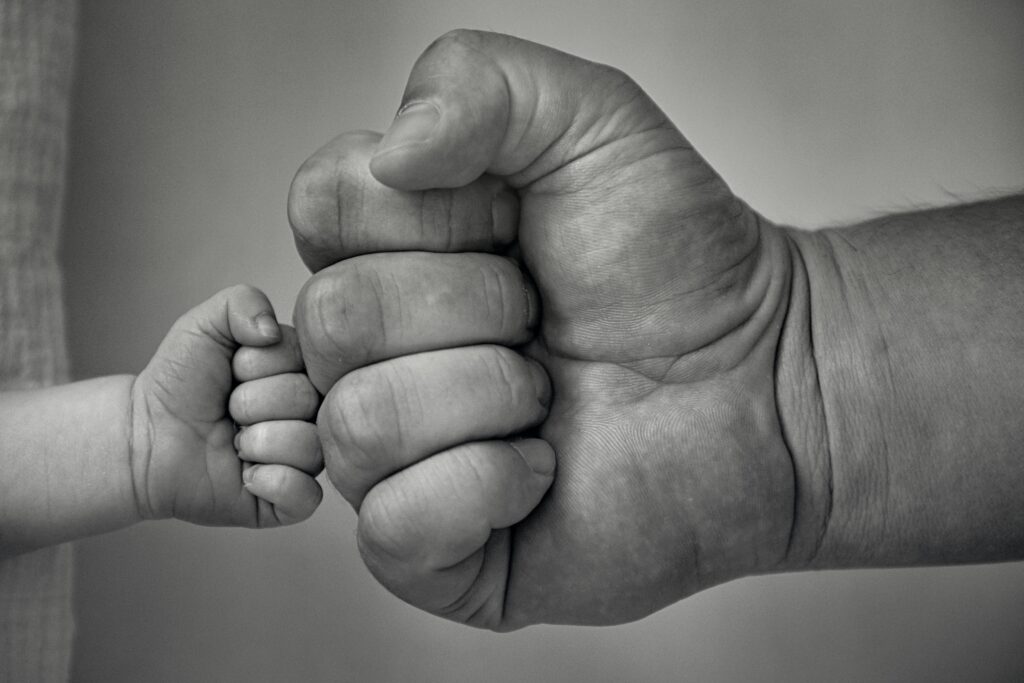
Prioritising careers and financial stability
Putting their career and relationship with their partner first is an empowering shift for women, Happy Minds Psychology psychologist Sarah-Jayne Duryea notes.
“Women are not focusing on having children in their 20s; they are pursuing careers and taking time to find the right partner,” Duryea explains.
She adds having these foundations in place can help with the adjustments that come with starting a family.
“Having a child is a huge life event that requires a major adjustment and changes to our identity, our place in the world and our relationships.
“My advice is to reserve the right to change your mind down the track, and to be ready for the possibility that this might mean it’s harder to conceive.”
Anxious thoughts
Up to one in five women experience symptoms of anxiety or depression during pregnancy or following birth, according to Perinatal Anxiety & Depression Australia (PANDA).
It’s a factor being considered when it comes to family planning, psychologist Rachael Walden from The Bondi Psychologist says.
“Health anxiety might ramp up as you hear about what might go wrong with pregnancy, labour and postpartum – not to mention what could happen to your newborn,” she explains.

“People who have had depressive episodes in the past are more likely to experience postnatal depression, and those with a trauma background might open some old wounds.”
Walden notes while all this could happen when starting a family, it doesn’t mean it will.
“You might need to go a bit easier on yourself, enlist more help from others or accept you can’t look after a baby and redecorate your living room at the same time,” she says.
Concerns about the future
Dr Allen says Australia’s fertility rate is well below the replacement level nationally.
“Sadly, it’s likely the total fertility rate will decline further,” Dr Allen says.
“There’s great uncertainty for Australians, who (feel) fear about tomorrow, following decades of inaction on housing affordability, economic insecurity, gender inequality and climate change.
“A lack of hope for the future means people are foregoing having much-wanted children.”
Effects of delaying pregnancy on fertility
“The biological clock is real. Younger women are more likely to conceive faster because of better quality eggs,” fertility specialist Dr Stephanie Sii, from Adora Fertility, explains.
The chance of conceiving when trying per month is called the fecundity rate.

“The rate is around 20 to 25 per cent for a woman in her 20s, and less than 5 per cent for a woman in her 40s,” Dr Sii says.
“As women age, the quality of her eggs will decline. Poorer quality eggs are more likely to fail fertilisation and have a reduced pregnancy rate per embryo transfer.”
It’s not only women who are faced with the ticking clock. Age can also have an impact on fertility for men.
“Male sperm quality generally starts to decline at around 40 years and there is a slight increase in some genetic conditions in the offspring of males aged over 50,” Dr Sii says.
Single women or same-sex couples are faced with a different set of timeline challenges that can delay their journey to becoming parents.
They also have to factor in additional time to find a donor egg or sperm, plus weigh up the physical, emotional and financial costs of IVF.
How technology can help
Dr Sii says assisted reproductive technology such as egg freezing presents an opportunity for women to preserve their future fertility and alleviate the burden of starting their family when the timing may not be right.
“The best age for a woman to freeze her eggs to preserve fertility is in her early 30s – between 30 and 33 years,” she says.
“The pregnancy rate from eggs retrieved from a 33-year-old woman is around 50 per cent per embryo transfer, as opposed to 10 per cent for a 40-year-old.”
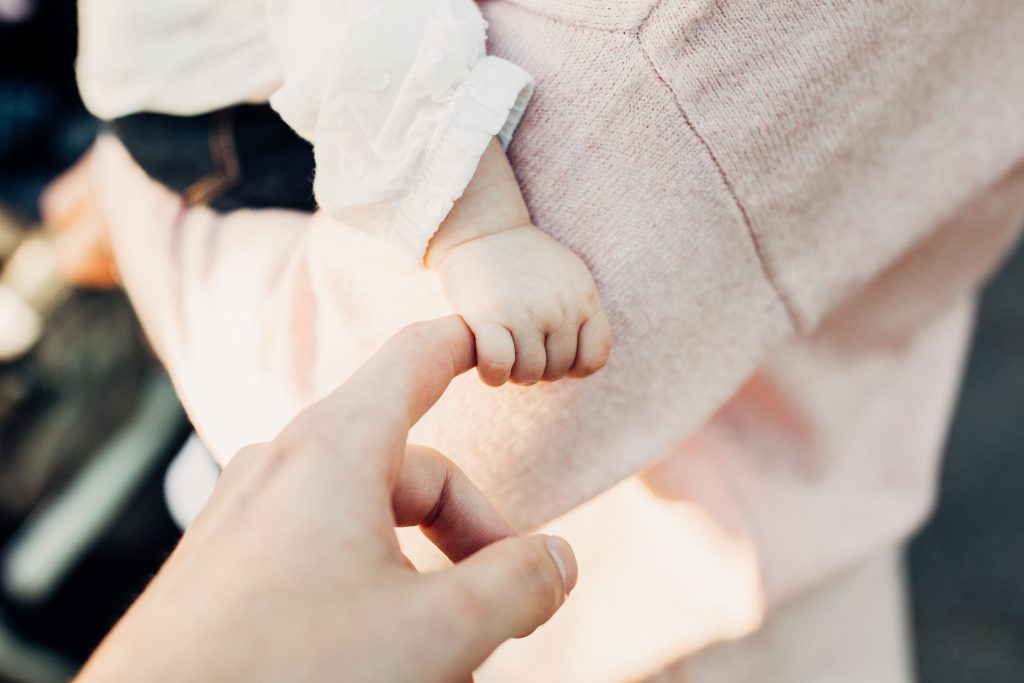
There are no guarantees, and there are risks.
“The downside of elective egg freezing is that it may be costly, given there is no Medicare rebate, with the approximate costs ranging between $9000 to $15,000 per cycle,” Dr Sii says.
“The risks include hormonal side effects, weight gain and, in very rare cases, bleeding, infection, ovarian torsion or ovarian hyperstimulation.”
